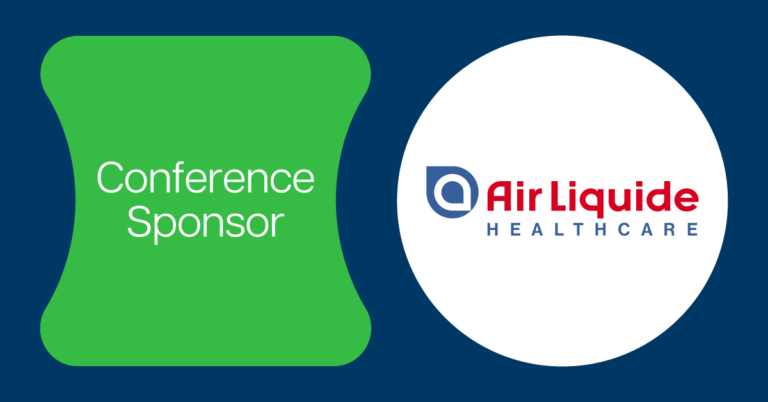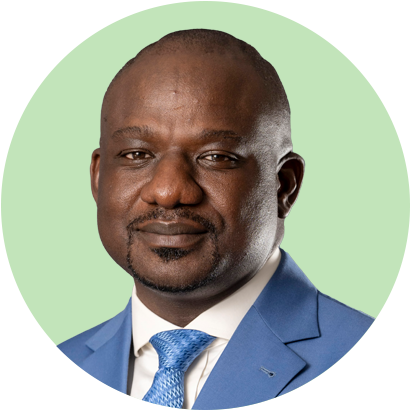We sit down with Air Liquide Healthcare, one of our ICHOM 2023 Conference Sponsors, for an insightful interview with Dolores Paredes, Vice President of the Healthcare World Business Line.
“We are committed to educate, empower and support 1.9 M patients at home all along their care pathway, measure which outcomes matter to them and adapt the care for better health results.”
Learn more about Air Liquide Healthcare, their innovative work and thoughts on VBHC and healthcare below.

Q: Could you quickly describe who Air Liquide Healthcare is?
Air Liquide Healthcare is engaged alongside 1.9 million patients at home, 15,000 hospitals, and healthcare professionals in 35 countries to make the healthcare systems efficient and virtuous for all. With 16,400 men and women, we are a major world player in healthcare, an expert in chronic diseases follow up at home and in community care centers, and supplier of services and medical gases solutions for hospitals in particular.
As an experienced Healthcare player, it is our duty to highlight that the Healthcare system is facing a deep crisis of Value. Confronted with aging populations and rising chronic diseases, systems focused on means and not outcomes are not addressing the increased needs and budget constraints. Moreover, after Covid-19 pandemic, shortage of healthcare professionals and the accelerated development of digital solutions indicate that the healthcare system needs to adopt other strategies to improve efficiency, reduce waste and focus on improving outcomes that matter to patients.
Air Liquide Healthcare has adopted a VBHC approach to contribute to make the Healthcare system more resilient for the future. We have more than 30 years of expertise in taking care of chronic patients at home and our unique proximity enables us to listen and understand what matters to them, to personalize the support with the final goal to improve their outcomes and quality of life. We are committed to delivering those outcomes for people living with respiratory diseases, diabetes or Parkinson disease. We believe that coordination with healthcare professionals is a fundamental pillar to work efficiently on what really matters, to prevent exacerbations of the disease and consequently reduce the costs for the healthcare system.
We are committed to educate, empower and support 1.9 M patients at home all along their care pathway, measure which outcomes matter to them and adapt the care for better health results.
Q: Where does Air Liquide Healthcare stand in its VBHC commitment?
In the context of growing healthcare needs and profound mutations in the sector, Air Liquide Healthcare is confirming its ambition to become a key innovative partner in the transformation of healthcare.
To carry this ambition forward, our strategy is to provide value to patients, healthcare professionals, and society. Air Liquide Healthcare wants to become an Outcome-Driven company. For this purpose, we have embarked on a value transformation 3 years ago. We experienced a big momentum in 2021 when we launched the VBHC strategy in Europe, and a second important milestone in 2022 when we engaged all our entities from Asia-Pacific, Africa and Middle East and Latin America.
We are convinced of the importance of putting the patient at the center of every decision we take and of everything we do. We interviewed more than 70,000 patients around the world to understand their behaviors and their concerns with their chronic conditions. After listening to them, we launched several pilots and clinical trials with this objective to demonstrate that our personalized service could improve outcomes that matter to patients. We also try to define some health economic models to bring some insights to the healthcare payers as well. Our challenge today is to make the link between the improvements of outcomes and the payment for the results we provide.
Q: How do you proceed concretly to go further in the VBHC transformation?
As I explained before, we have launched a common and global VBHC methodology. Based on the famous equation of Prof. Porter, we defined a strategy to work on increasing the numerator (the outcomes) and link it with the denominator to maintain or even decrease the cost. We defined our Air Liquide Healthcare Value Agenda setting 3 pillars that every single employee in the organization is following:
- Creating value models to improve healthcare outcomes;
- Deploy an operational excellence program with a strong methodology to improve the patient pathways, eliminate the waste and maintain what brings value to the patient;
- Partner with key external stakeholders to promote the VBHC concept and engage policy-makers on the value transformation.
Q: What prompted you to take part this year?
We believe this huge transformation required a strong alignment between many key actors in the sector: patients, healthcare professionals, public authorities, payers, industrial players and other institutions working for the sake of a valuable and sustainable healthcare system. Joining forces in the VBHC adoption is key to make it happen. We are strongly convinced about the importance of creating alliances within the most interactive event dedicated to VBHC, ie. ICHOM, to make our voice louder and to engage decision-makers from the very beginning.
In the long term future, we dream of having all healthcare systems around the world working with a VBHC model, sharing common outcomes set measures, whether hospitals, healthcare professionals and any providers, to create a virtuous circle to improve what matters most to patients and to be paid based on these results.
Q: Finally, what Air Liquide Healthcare advocates for?
1- Air Liquide Healthcare considers that including PREMs and PROMs collection routinely into clinical practice will be essential to guide personalized care decisions and shape the present standard care pathways into more flexible, adaptable and personalized ones.
2- It is also crucial to get a consensus on outcomes standard sets for chronic conditions in the respiratory and diabetes field and to simplify these standard sets to make them actionable and accessible to all types of healthcare providers.
3- Finally, our ambition is to obtain the “freedom to operate” from the healthcare policy-makers to bring adapted care for patients and, as a consequence, improve outcomes. The freedom to operate will mean that we rely not on the processes we need to perform, but on the results we should deliver. In addition, we need a commitment from decision-makers to shape the current reimbursement schemes to link the price paid to the benefit for the patient, which will consequently benefit the Healthcare system.


















